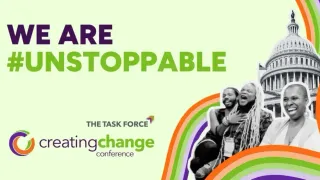May 16, 2024
Get to Know LGBTQ+ Social Media Star Matt Bernstein (@mattxiv)
Shawn Laib READ TIME: 4 MIN.
One of the most vital LGBTQ+ voices on social media today belongs to Matt Bernstein. A vibrant, outspoken gay man with a taste for fashion and political advocacy, Bernstein is especially interested in standing up for transgender rights. It's incredible for a cisgender man like Bernstein to be so passionate about trans people, hopefully leading to more cisgender queer folks to follow in his footsteps and create a more tolerant atmosphere for the trans community.
Let's take a look at some of Bernstein's best posts on Instagram and Twitter, from discussions surrounding HIV to funnier posts about jelly bean flavors!
Bernstein focuses on the horrific anti-trans rhetoric that sweeps the country on an almost daily basis. This slideshow specifically focuses on those who support gay rights, but not trans rights. Some gay men have been pushing for an "LGB without the TQ" movement, something that is highly hypocritical considering how much of the same bigotry used to be, and often still is, spewed towards same-sex attraction. Bernstein brings up examples of bathroom lawsuits and government oversight that harmed gay people in the 1970s that are now being used once again to discriminate against trans folks.
Bernstein gives his two cents regarding the ideal male body and "dad bods" after Travis Kelce was criticized for his physique while at the beach with Taylor Swift. The slideshow discusses the importance of healthy diet and exercise regimens, and how those measures aren't always about having a "perfect" body. Bernstein brings up that the idea of a fit man has been horrifically distorted by actors and influencers who use performance-enhancing drugs and endure eating disorders to look like action heroes.
Bernstein took a break from fighting social injustices to pose for a thirst trap on Twitter! He looks fit and fun with his gorgeous painted nails, white tank top, and black underwear.






